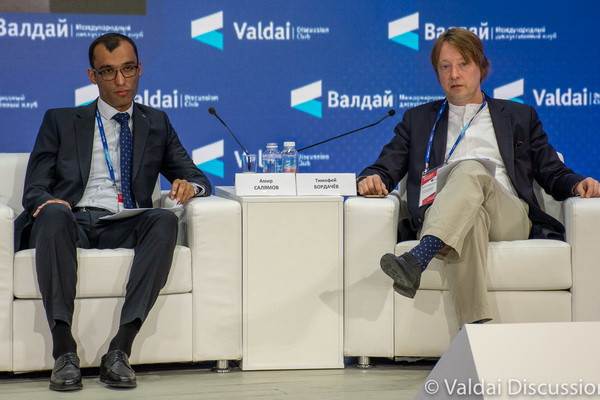
ISMI: The countries of Central Asia are showing an unprecedented readiness to jointly transform Central Asia into a region of stability, security and sustainable development
Tashkent, Uzbekistan (UzDaily.com) -- Kazan hosted the first Central Asian conference of the Valdai International Discussion Club on the theme: "Russia and Central Asia facing the challenges of the new world - a joint path to the future."
The conference was attended by over 60 renowned experts from 16 countries, including Russia, Afghanistan, Great Britain, Germany, Iran, Kazakhstan, Kyrgyzstan, China, Tajikistan, France and Estonia. The Uzbek side is represented by experts from the Institute for Strategic and Interregional Studies under the President of the Republic of Uzbekistan and the International Institute of Central Asia.
Speaking at the session "Russia’s policy in Central Eurasia and its perception by regional powers", the head of the ISMI department Amir Salyamov drew attention to the growing importance and role of Central Asia in the system of international relations, in the processes of political and economic interconnection, in ensuring regional and global security.
According to him, today Central Asia is playing an increasingly important role in the Eurasian space and in the world as a whole. Recently, thanks to the synchronization of efforts and approaches, a completely new atmosphere of trust, good-neighborliness and cooperation have been formed in the region.
The political dialogue between the leaders of the states of the region has acquired a regular and confidential character. As they interact at all levels, important joint decisions are made on regional and international issues of mutual interest to the countries of the region: in the field of security, economy, investment, tourism, culture, health care and ecology.
At the same time, it is necessary to note the primary and key role of the Central Asian states in solving urgent problems and pressing issues of the entire region.
Thus, the Central Asian countries are showing an unprecedented willingness to work together to transform Central Asia into a region of stability, security, sustainable development and shared prosperity.
The expert stressed that everyone will benefit from this - both the Central Asian states and non-regional partners, since the ability of the Central Asian countries to ensure peace and stability in the region will largely determine the dynamics of the most important processes in Eurasia.
The new political atmosphere of mutual trust in Central Asia acts as a driver for intensifying cooperation both within the region and with the outside world. At the same time, regional dialogue and cooperation in priority areas contributes to the formation of Central Asia as a stable, open and dynamically developing region, a reliable and predictable international entity.
In turn, external partners gradually developed an understanding that stimulating regional interaction opens up new opportunities for the implementation of promising projects in Central Asia.